On February 12, 2024, practice from Kraków – the inaugural procession of Jagiellonian University professors – was added to Polish National List of Intangible Cultural Heritage. It is the first academic initiative to be included among the national intangible cultural heritage practices to be protected in Poland.
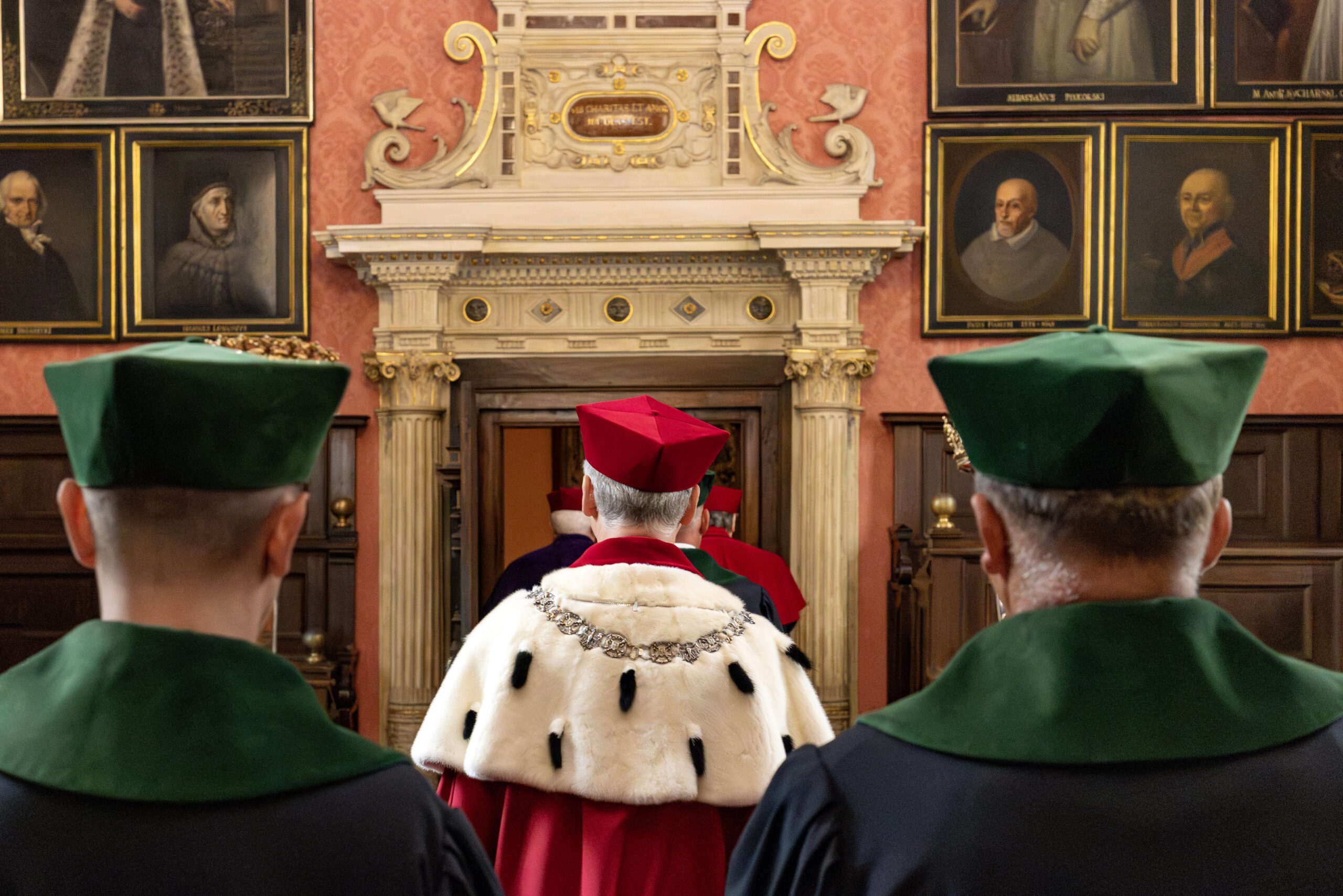
Mateusz Kozina
The first ceremonial procession marking the inauguration of the academic year at the Jagiellonian University in Kraków took place on October 7, 1886, but certain elements of the procession had already functioned in academic tradition in the Old Polish era. Initially, the procession was small and consisted of only three representatives from four faculties. Nowadays, representatives of all sixteen faculties of the university participate in the procession, with each professor wearing a gown in the colour symbolising their faculty. In front of each faculty and the rector, walks a designated pedlar carrying the faculty or rector’s scepter – one of the oldest in Europe. The march is started by representatives of the youngest faculties, and closed by representatives of the oldest ones – medicine and law – and the university’s rector. The route of the procession leads through the streets of the Old Town starting at the oldest university building, the Collegium Maius, leading to the Auditorium Maximum, where the ceremonial inauguration of the new academic year takes place.
The inclusion of the inaugural procession of the Jagiellonian University on the National List of Intangible Cultural Heritage reflects its role in shaping academic traditions and culture, while at the same time deepening public awareness of the existence, significance, and need for institutional protection of academic heritage. This, in turn, may have an impact on the traditions of other higher education institutions in Poland. The entry also emphasises the contribution of the Jagiellonian University to shaping the cultural landscape of Kraków and the role the institution plays in the life of the city.
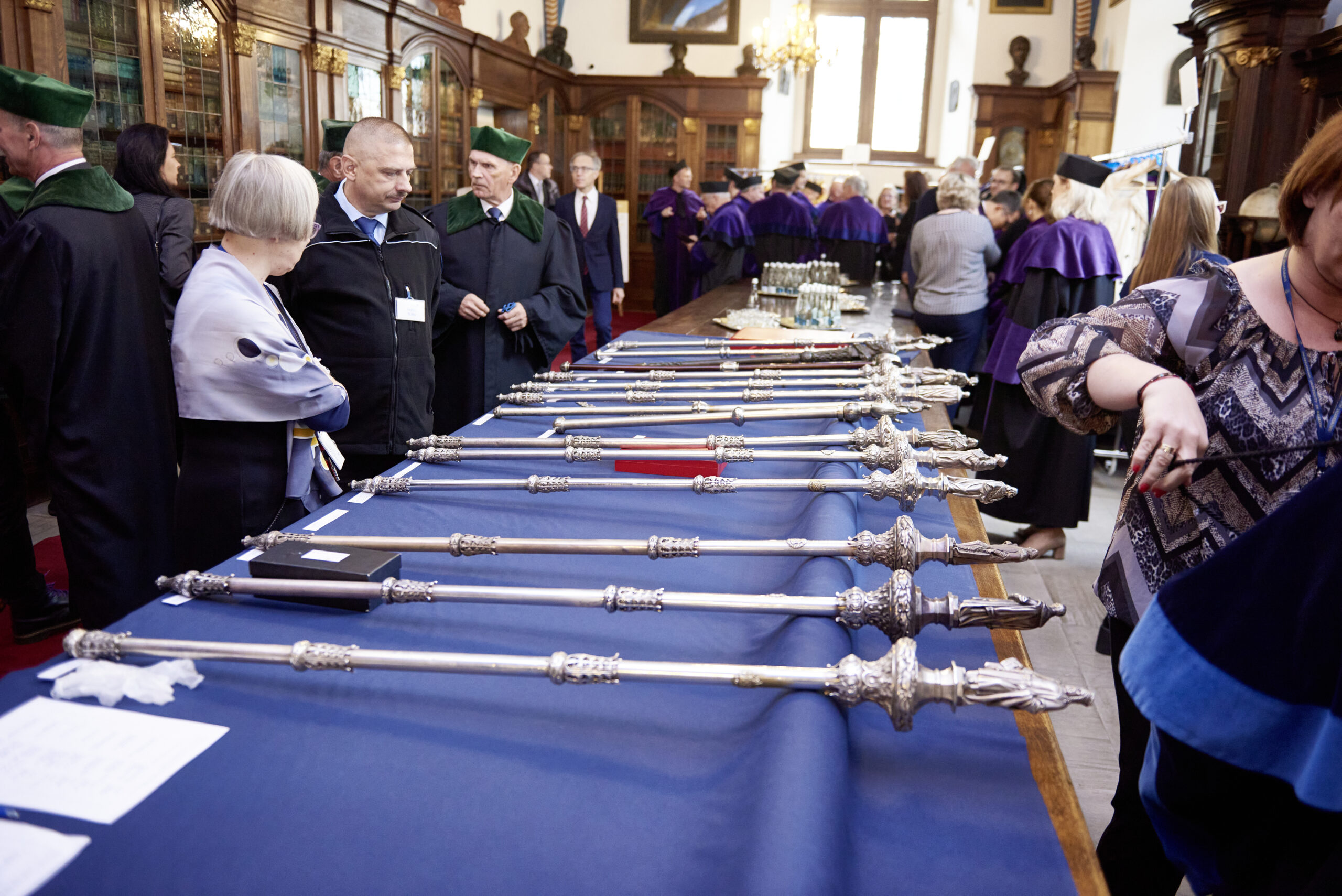
Karol Kowalik
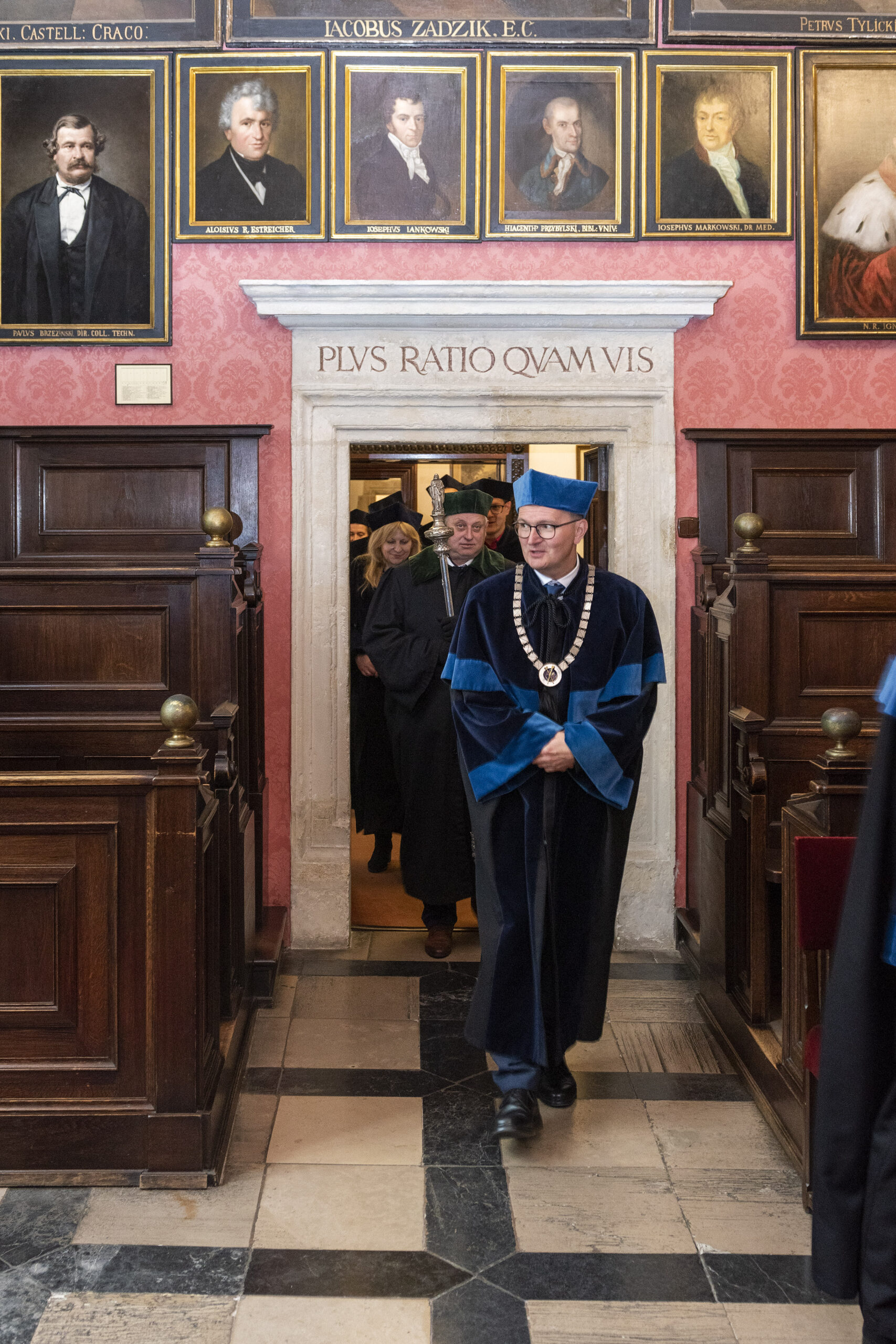
Mateusz Kozina

Mateusz Kozina
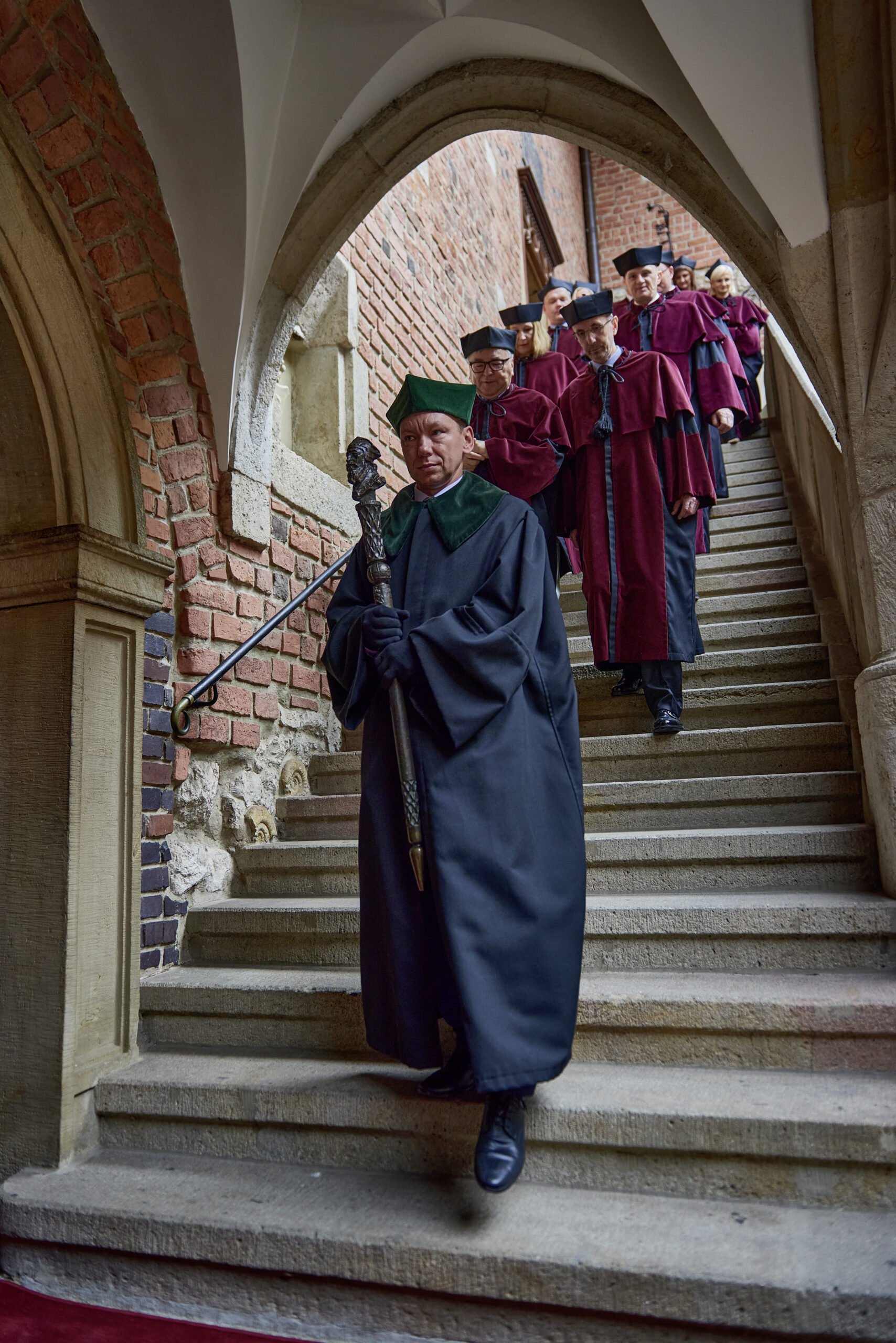
Karol Kowalik

Karol Kowalik
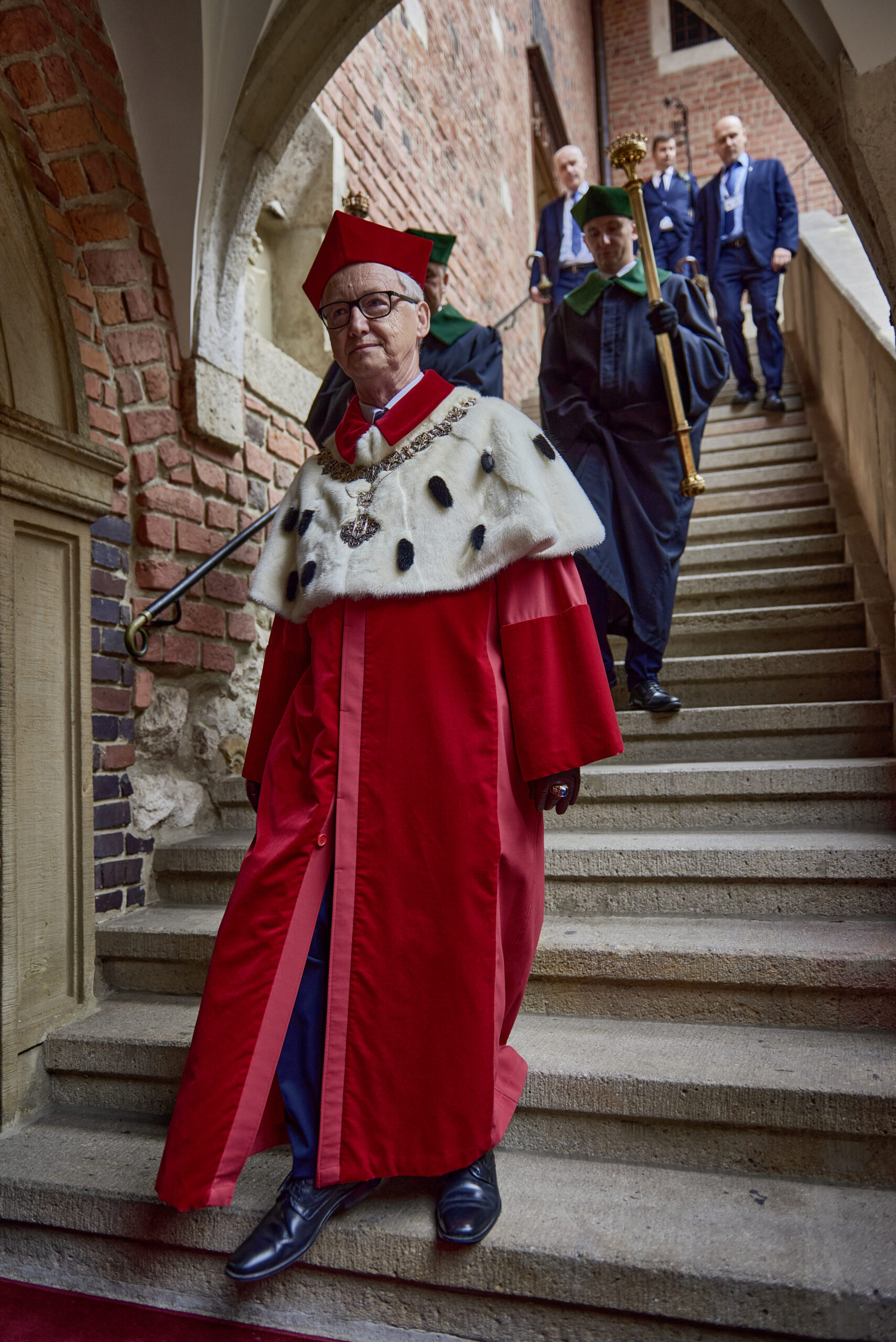
Karol Kowalik
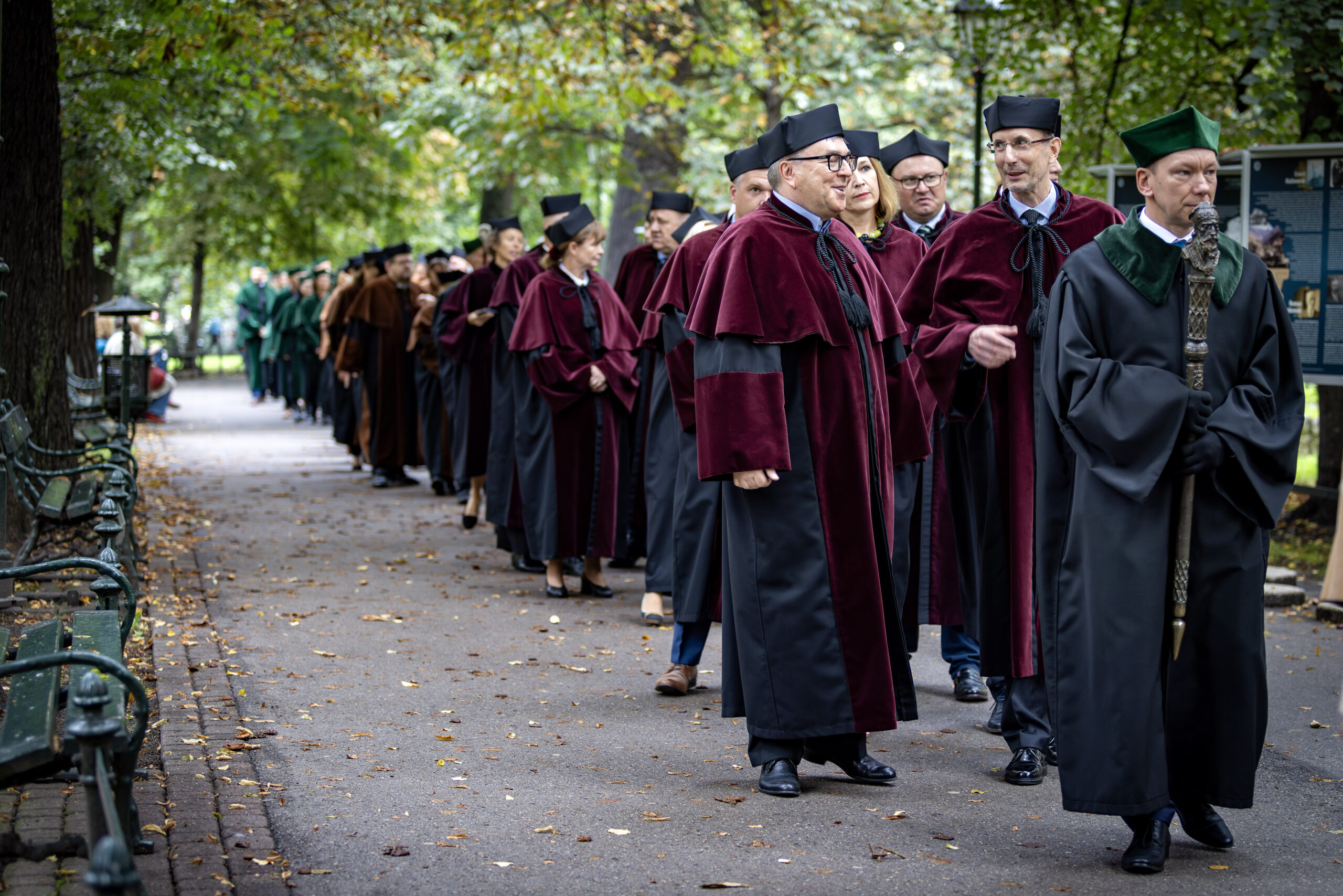
Mateusz Kozina
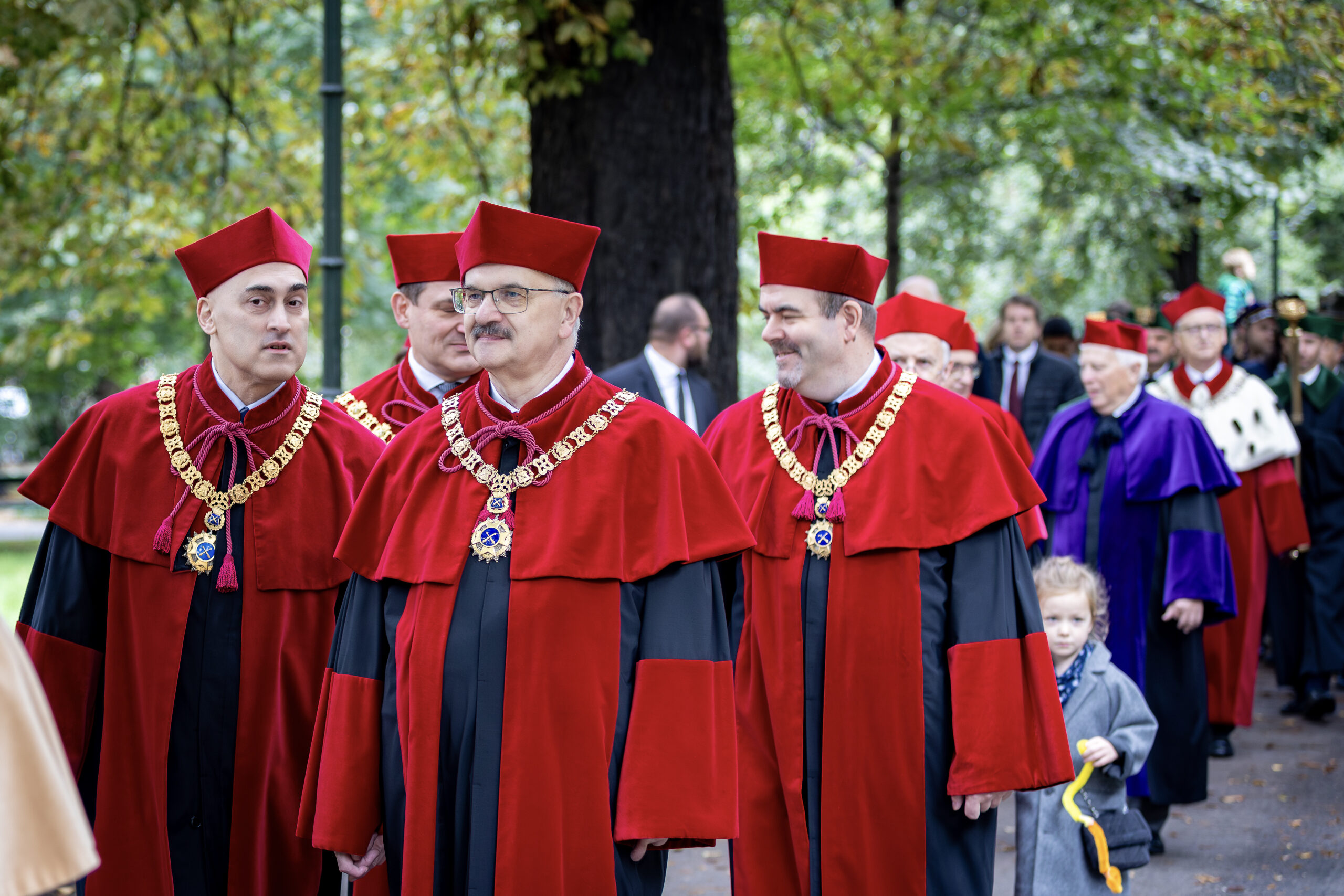
Mateusz Kozina

Mateusz Kozina

Mateusz Kozina
The professors’ procession is another entry from Kraków to be included on the national list of intangible cultural heritage, alongside the Kraków nativity scene tradition (added in 2014), the Lajkonik procession (2014), Polish national dances – including the krakowiak (2015), Krakow bobbin lace-making (2016), and the Polonaise dance (2019). The Kraków nativity scene tradition and the Polonaise are also included on UNESCO’s Representative List of the Intangible Cultural Heritage of Humanity.
The National List of Intangible Cultural Heritage has been initiated in 2014. It has a tentative character and is the form of implementation of the UNESCO Convention for the Safeguarding of the Intangible Cultural Heritage from 2003, which imposes on member states the obligation to develop an inventory of manifestations of intangible cultural heritage within their territories, according to the adopted recommendations and standards. Poland ratified the Convention in 2010. The national list is maintained by the Minister of Culture and National Heritage in cooperation with the National Heritage Institute.
Europa Nostra Heritage Hub in Kraków addresses the issue of Kraków’s intangible heritage practices at the meetings of the Kraków Heritage Forum, a space for dialogue and cooperation for Kraków’s civil organisations operating in the heritage sector. Our Hub is also part of the Team for the Intangible Heritage of Kraków established by the mayor of the city.